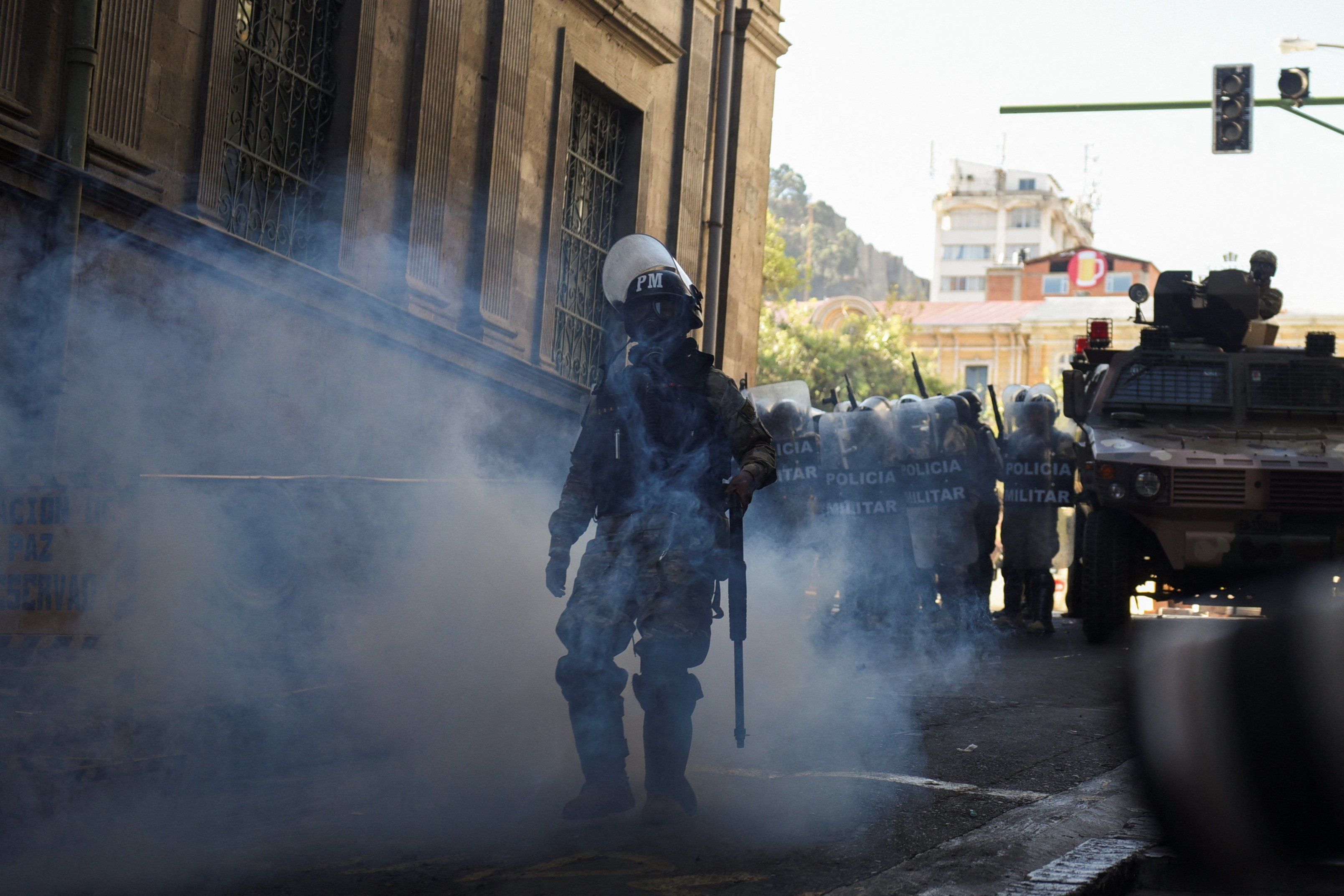It was over almost as quickly as it began. On Wednesday, Bolivian state television broadcast images of armored military vehicles ramming the door of the government complex in La Paz on Wednesday, as soldiers occupied the capital city’s central square in an apparent coup attempt.
President Luis Arce called on irregular popular militias to fight back, but just hours later the soldiers had withdrawn from the square and top General Juan José Zuñiga, apparent leader of the coup attempt, was arrested.
Bolivia has experienced several years of upheaval since 2019, when leftwing populist Evo Morales -- the country's first Indigenous president -- was ousted amid mass protests over election irregularities after seeking an unconstitutional third term in power.
Morales was succeeded by interim president Jeanine Añez, an ultra-conservative opposition Senator, who led a deadly crackdown on protests by Morales’ largely rural and indigenous support base. In 2020, Arce, a one-time ally of Morales’, won the presidential election, and two years later, Añez was sentenced to a ten-year jail term over accusations that she had illegally taken power from Morales.
Part of the backdrop to the unrest is a failing economic model. Morales' once-booming strategy of tapping Bolivia's vast natural gas resources to lift millions out of poverty has long since hit the skids because of lower prices and shrinking production.
Morales himself, still a powerful figure, had denounced the coup on Wednesday, calling on his supporters to take to the streets.
And that's where the plot thickens: Morales and his former comrade Arce are now bitter rivals, jockeying for position ahead of the 2025 presidential elections.
